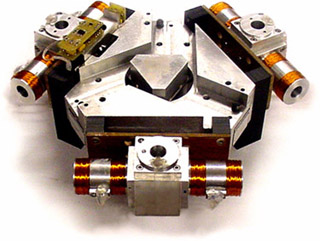Course Description
Multi-scale systems (MuSS) consist of components from two or more length scales (nano, micro, meso, or macro-scales). In MuSS, the engineering modeling, design principles, and fabrication processes of the components are fundamentally different. The challenge is to make these components so they are conceptually and …
Multi-scale systems (MuSS) consist of components from two or more length scales (nano, micro, meso, or macro-scales). In MuSS, the engineering modeling, design principles, and fabrication processes of the components are fundamentally different. The challenge is to make these components so they are conceptually and model-wise compatible with other-scale components with which they interface. This course covers the fundamental properties of scales, design theories, modeling methods and manufacturing issues which must be addressed in these systems. Examples of MuSS include precision instruments, nanomanipulators, fiber optics, micro/nano-photonics, nanorobotics, MEMS (piezoelectric driven manipulators and optics), X-Ray telescopes and carbon nano-tube assemblies. Students master the materials through problem sets and a project literature critique.
Course Info
Learning Resource Types
notes
Lecture Notes
group_work
Projects
assignment
Problem Sets
assignment
Written Assignments

The Macro-Scale Hexflex Nanomanipulator is an example of a Multi-Scale System (MuSS) considered in this class. (Photo courtesy of Prof. Martin Culpepper.)










